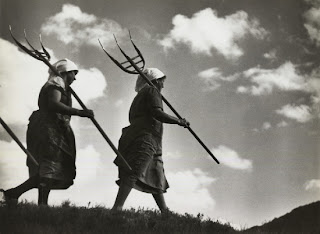
What form(s) of school is best for kids? Should public schools continue to reform themselves? Should other systems be embraced? Free Skools, home schooling, unschooling...? I love this conversation; however it tends to end quickly and people of like minds end up sitting around their dogma campfires. The free skool folks vent about those nasty teachers and oppressive systems—everyone in the circle nods. The traditional school folks don't even know that other models are viable and complain about funding, unruly kids, and absent parents—they reach for another cup of coffee. Let's look for a 3rd or 4th alternative which may embrace or reject parts of both. As a teacher in the system, I feel like I can sit down at either campfire, strike up a conversation and find some theoretical or philosophical agreement. But I loath the dogma and group think. Granted it is human to befriend and/or communicate with people we agree with, but really—what about the kids. The conversion becomes so much about structure and rules the kids get left out.
Should I leave public school system because I disagree with it? I’ve wrestled with this idea a lot—especially as it relates to the Church. Do I leave a church because its public image and hierarchy is something I don’t want to be associated with? Aren’t the relationships worth something? In my case, I left a big church. The system is/was beyond saving (at least the kind of help I could offer).
So is my little public school worth saving? Should I leave it like the “c”hurch. The students need me to work for them. Not just be a good teacher, but advocate for their autonomy and brilliance. I look to people like Freire. He said it well in the Pedagogy of the Oppressed, “…the humanist revolutionary educator cannot wait for this possibility to materialize. From the outset, her efforts must coincide with those of the students to engage in critical thinking and the quest for mutual humanization. His efforts must be imbued with a profound trust in people and their creative power. To achieve this, they must be partners of the students in their relations with them.” I can’t wait to start something new or find something amazing happening in the world. It must start now at my little school. Who knows I may get expelled from my “country” as Freire was from



5 comments:
There are so many different ideas - dogmas is a better word. And many experiments tension me because they are just that - experiments performed on our children. The Utne has a good article on play: http://www.utne.com/2008-07-01/Politics/The-Future-of-Creativity.aspx that brings up another possibility - what if all of our fussing is causing more harm than good?
In the end, we all have to take a deep breath and remember that children are not means of production or reservoirs of ideas...they are wonderful expressions of something infinite and divine. Not that we shouldn't wrestle with these ideas - but we should be slow to weight down childish imaginations with our dogmas.
hey,
just thought I'd let you know I'm using this for english class as an example of persuasive writing :)
Thanks Hope...did it work?
I was kind of disappointed - usually my writing teacher focuses more (to a fault??) on what he's making us bring in. So...yes if worked very well :) but I didn't get to really discuss it.
Great post, lots to think about.
I am working at trying not think to hard about my writing, and not try to make everything so perfect. but just try to write what I'm feeling at that moment. I think the video might be something good for me as i get the hang of it.
Post a Comment